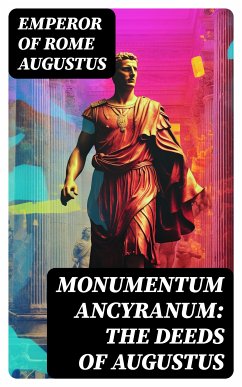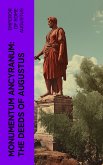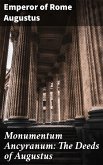The "Monumentum Ancyranum: The Deeds of Augustus" presents an intricately detailed account of the achievements and policies of Rome's first emperor, Augustus, inscribed on a temple wall in Ancyra (modern-day Ankara, Turkey). This monumental text combines autobiography and propaganda, skillfully employing laudatory rhetoric in its portrayal of Augustus's military victories, administrative reforms, and religious honors. Written in the classic style of Roman history, it serves not only as a personal narrative but also as a declaration of the era's political ethos, established in the wake of the turbulent Roman Republic's decline. Augustus, originally known as Gaius Octavius, rose to power following Julius Caesar's assassination, fundamentally transforming Rome from a republic to an imperial power. His reign marked a Pax Romana-an unprecedented peace across the empire. The creation of this text can be seen as part of his larger strategy to solidify his legacy while shaping public perception, a task that required deft political acumen and a deep understanding of Roman cultural values. For readers interested in the foundations of Western political thought and historical narrative, the "Monumentum Ancyranum" is essential. It not only illuminates the complexities of Augustus's rule but also offers insight into the ways leaders construct their identities. As such, it is an invaluable resource for historians, classicists, and anyone keen on understanding the origins of political power in ancient Rome.
Dieser Download kann aus rechtlichen Gründen nur mit Rechnungsadresse in A, B, BG, CY, CZ, D, DK, EW, E, FIN, F, GR, H, IRL, I, LT, L, LR, M, NL, PL, P, R, S, SLO, SK ausgeliefert werden.









